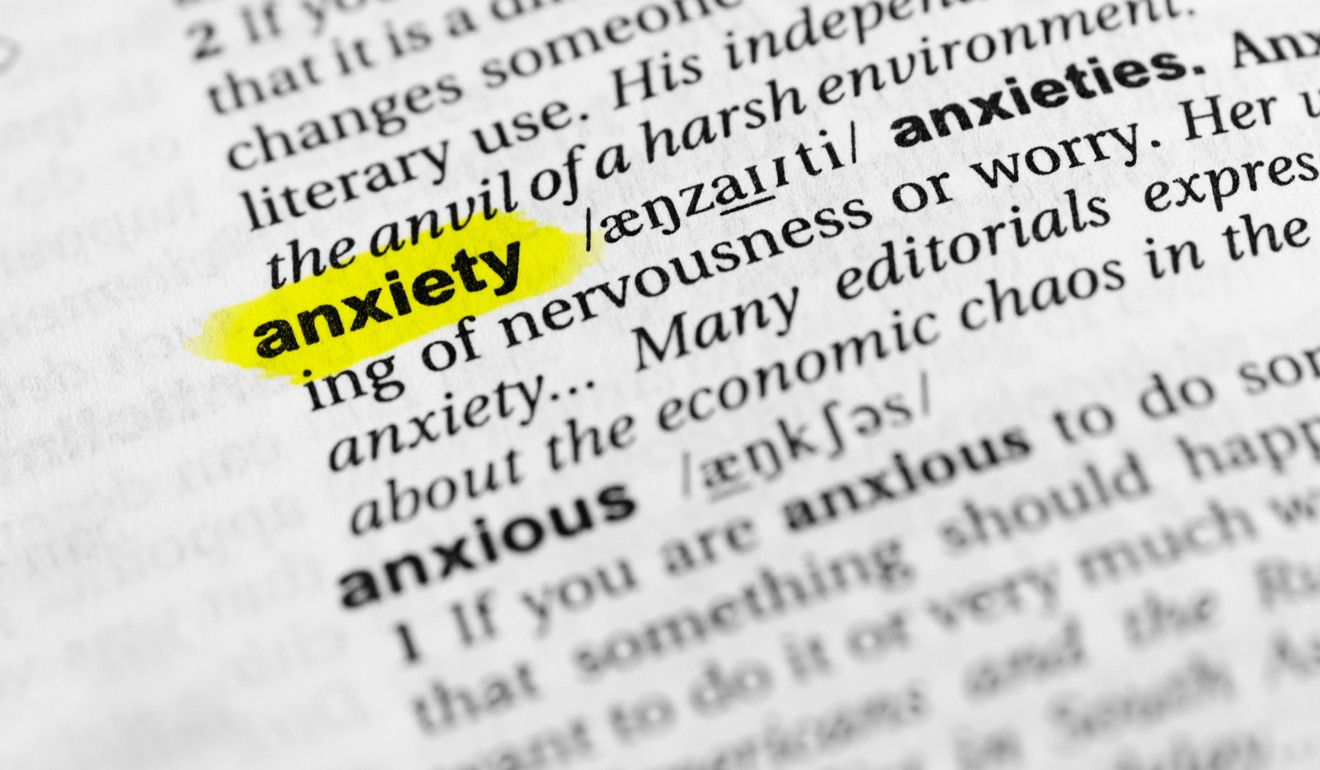
World Mental Health Week 2018: how one woman beat anxiety and helps others overcome theirs
Minal Mahtani was a teacher when she had cognitive behaviour therapy for anxiety. Impressed, she switched careers, became a therapist and set up OCD & Anxiety Support Hong Kong
Often the language used in public health campaigns can seem academic, so we’re inclined not to pay attention and to dismiss the cause in question as if it does not affect us. But this one does. You or I might not suffer from a mental illness, but we all have to look after our mental health.
“Mental health is what we all have [to take care of]. Like physical health we have a responsibility to look after it: the state of our mind affects the way we feel think and react to stressors,” Minal Mahtani, CEO and founder of OCD & Anxiety Support Hong Kong explains.
You’re destined to fail in pursuit of ultimate happiness. Try this instead
“Mental illness, on the other hand, is caused by a dysfunction of the brain affecting our thoughts, emotions and behaviour, causing distress in sufferers, disrupting daily life and activities – at work, at home, and socially. It causes physical, emotional and behavioural changes.”
World Mental Health Week – of which World Mental Health Day on October 10 was a part – is about raising awareness of how important mental health is for all of us, and about stripping away stigma about mental illness and showing understanding and compassion for people dealing with it.

Even if you or I don’t battle with mental illness, the chances are we know or love somebody who does. One in four people in the world are affected, the World Health Organisation (WHO) said this week.
That puts mental health disorders among the leading causes of ill-health and disability worldwide, second only to heart disease, to which it contributes.
Mahtani herself has battled anxiety, which gives her the inside track on how debilitating and isolating mental illness can be.
“I suffered in my late 20s,” she said, “following the deaths of three family members which created great fear within me and led to me craving safety, certainty and control.” What helped her was not just the belief and support of those close to her, but the fact she could afford to access the right kind of care fast, which was cognitive behaviour therapy, or CBT.
People in Hong Kong need to be reassured that it’s OK not to be OK
She describes CBT as a structured talk therapy where the therapist helps the client examine the thoughts that impact behaviour and emotions.
“We take time to challenge unhelpful, unrealistic or emotion-based thoughts and teach clients to create new thought patterns using fact and concrete evidence,” she says.
It is a combination of cognitive therapy (examining the things you think) and behaviour therapy (examining the things you do). For example, interpreting a situation negatively can prompt negative thinking. The trick is to change your thought patterns and responses.
Also called “talk therapy”, it’s a more engaged, interactive approach than passively lying on the therapist’s couch and offloading your worries.
CBT made such a difference to Mahtani that she made a complete career change, from primary-school teacher to CBT therapist. A psychology graduate, she received training in CBT from teachers at both Harvard Medical School and the International Obsessive Compulsive Foundation.
Mental health care in Hong Kong is a pressing issue, she says. Her experience spurred her curiosity about the city’s health care system, and she found that there was a lack of English-speaking support services and resources.
Get a grip: why keeping your hands busy can make you happier
If a person wanted to access care they had to go through the public health care system, where it could take 18 to 24 months to get an appointment to see a specialist psychiatrist and psychologist. When they finally did, the average consultation was five to seven minutes because of time constraints and the pressure of the doctor’s patient list. The standard treatment is to prescribe drugs.
“A patient was prescribed medication, not psychotherapy as that involves a lot of time, and doctors in Hong Kong simply do not have that time because of the burden of care,” she says.
Medication absolutely has a place in the treatment of mental illness but it is well established that talk therapy – and especially CBT – is an incredibly useful adjunct, not just hastening recovery but often helping to sustain it in the absence of medication. It is widely acknowledged that the best approach to treatment is a combination of the two.

Mahtani was fortunate in being able to afford private health care but, as she observes, “at between HK$1,800 [US$230] and HK$3,000 an hour, not many people can afford this, especially where the cost of living is high already”.
According to the WHO, more than 40 per cent of countries have no mental health policy, over 30 per cent have no mental health programme, and 25 per cent have no mental health legislation.
Understanding both the pain of a mental health disorder and what made her well again lent both the necessary foundation and motivation for Mahtani’s development of Hong Kong’s OCD and Anxiety Support. Its aim is to create a community of care for those who live with these conditions, either themselves or in people they love – because even if you’re familiar with mental illness, and even when you really want to understand, it can be hard.
How learning to play saved my life from the depths of depression
According to a 2015 study, 13.3 per cent of people in Hong Kong, or one in seven, have suffered from mental health disorders, she says.
“We do not know how accurate these numbers are, though, because of the attendant stigma; people are afraid to talk for fear of judgment and being shamed. As a result, only a quarter of those struggling with anxiety or depression actually seek help. Stigma is a barrier, and an obstacle to getting better,” Mahtani says.
The stigma surrounding mental illness persists, even after years of activist groups trying to erode it, Mahtani says, because “people still do not talk about it enough”.
If it were your physical health that you were worried about, you’d see a doctor. Why worry less about your mental health?
“They are scared to because of the cultural taboos that exist around mental illness. They imagine that those who suffer are crazy, violent, or dangerous,” she says.
A lack of public education about mental health disorders amplifies the stigma, Mahtani adds. When she first began her support groups, in 2014, she had a single attendee; now she has 120 members and runs groups of up to 20 people at a time.
“People in Hong Kong need to be reassured that it’s OK not to be OK,” Mahtani says. “We’re all human, we have a range of emotions for a range of reasons and those emotions need expression. Cultural beliefs can impose the belief that feeling like this – feeling anxious or depressed – is the consequence of weakness, and [is] self-imposed.
“It’s not. Indeed, recognising you need help, seeking help, is a strength.”
She is pragmatic, too.
“If it were diabetes, if it were your physical health that you were worried about, you’d see a doctor. Why worry less about your mental health?” she says.
Depression, anxiety rife among university students, study finds
Mahtani’s aim in World Mental Health Week is to drive a “Say No to Stigma” social media campaign and to deliver workshops and talks. Her team were out and about making green ribbons for World Mental Heath Day, which are worn to demonstrate support for mental health sufferers.
“You might not understand it,” she says, “but you can endorse mental illness as a real and painful condition … that comes with hope of support and treatment.”

